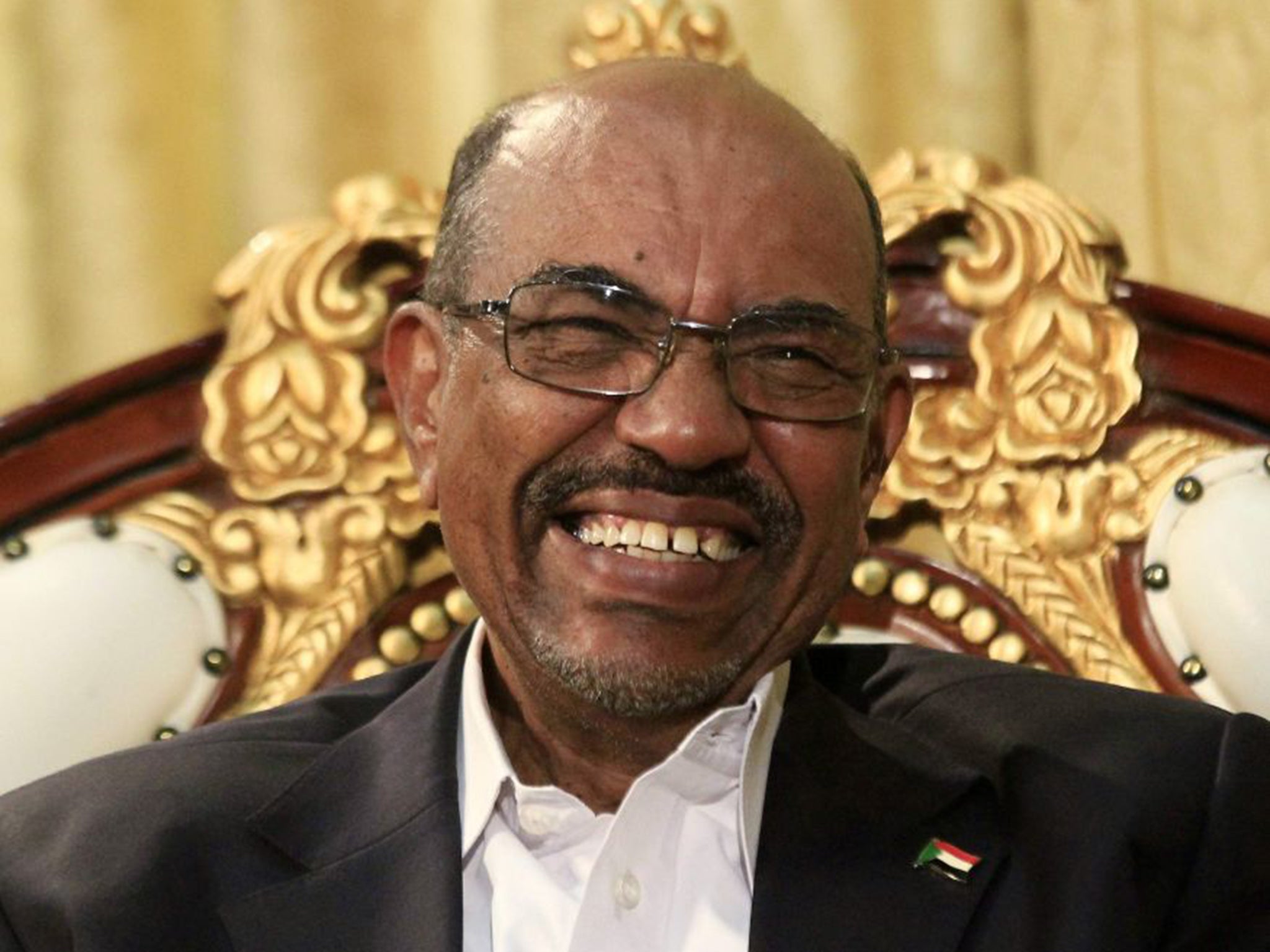Sudanese president wanted for genocide pulls out of Saudi conference with Trump
Omar al-Bashir has backed out of trip to Riyadh for 'personal reasons', Sudanese state media reports

Your support helps us to tell the story
From reproductive rights to climate change to Big Tech, The Independent is on the ground when the story is developing. Whether it's investigating the financials of Elon Musk's pro-Trump PAC or producing our latest documentary, 'The A Word', which shines a light on the American women fighting for reproductive rights, we know how important it is to parse out the facts from the messaging.
At such a critical moment in US history, we need reporters on the ground. Your donation allows us to keep sending journalists to speak to both sides of the story.
The Independent is trusted by Americans across the entire political spectrum. And unlike many other quality news outlets, we choose not to lock Americans out of our reporting and analysis with paywalls. We believe quality journalism should be available to everyone, paid for by those who can afford it.
Your support makes all the difference.Egypt’s authoritarian Abdel Fattah al-Sisi was the first world leader to get a phone call when US President Donald Trump entered office. Warm congratulations were offered to Recep Tayyip Erdogan on the result of a national referendum which will probably see him stay in power until 2029.
And Mr Trump holds Vladimir Putin in such high regard he was apparently willing to share classified information with the Russian Foreign Minister last week.
The latest international strongman – or dictator, as the rest of us would put it – who Mr Trump could possibly have been rubbing shoulders with is Sudan’s Omar al-Bashir, wanted by the International Criminal Court (ICC) for crimes against humanity, including genocide.
Sudan’s Foreign Minister had previously confirmed the president's attendance, but Sudanese state media reported on Friday that he has belatedly decided against attending a summit in Riyadh designed to bring 50 Muslim leaders together during Mr Trump’s visit to Saudi Arabia over the weekend.
The national reports said "personal reasons" were to blame, but did not elaborate on the circumstances.
Bashir had “the removal of sanctions finally which were imposed by the US on Sudan [and] how to combat and how to fight terrorism” on the top of his agenda, ruling National Congress Party colleague Rabie Abdul Atti said before it emerged his office had cancelled the trip.
Bashir, who has ruled the country for almost three decades, is officially blacklisted by the US for presiding over a state sponsor of terrorism, as well as his role in the Darfur conflict – for which he is wanted by the ICC on multiple charges.
He has consistently denied any culpability in the violence which has killed at least 300,000 in Sudan’s east since 2003.
Human rights advocates had expressed outrage that any kind of meeting could take place between the two leaders during the weekend's activities.
“The concern is that any kind of meeting, handshake or photo-op between President Trump and President Bashir will send a dreadful signal to victims in Darfur and victims of crimes worldwide,” Richard Dicker, the director of the International Justice Programme at Human Rights Watch, told Newsweek.
Mr Trump’s administration had condemned the 73-year-old leader’s invite to the talks.
“We oppose invitations, facilitation, or support for travel by any person subject to outstanding ICC arrest warrants, including President Bashir,” a spokesperson from the US Embassy in Khartoum said.
Sudan was one of the six countries targeted by President Trump’s failed “Muslim ban” earlier this year. It is one of only thee – along with Iran and Syria – to be designated a “state sponsor” of terrorism.
The week before Mr Trump entered office, Barack Obama’s administration announced that progress in reducing the level of violence in several restive regions and efforts to counter terrorism would be rewarded by the lifting of certain sanctions against the country.
The US President’s nine-day trip to Saudi Arabia, Israel, the West Bank and the Vatican, which begins on Saturday, is his first foreign trip since entering office.
Join our commenting forum
Join thought-provoking conversations, follow other Independent readers and see their replies
Comments